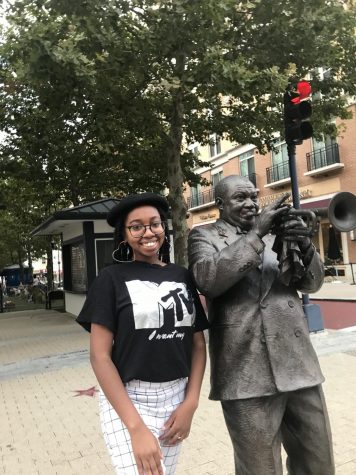The death of a celebrity can be historically monumental for many people. Whether the person is a singer, politician, athlete or actor, the world mourns at the news of losing an icon.
We must validate these feelings.
One minimizing thing people say when a famed artist, writer or musician dies is, “at least the world still has all its work.” Although this is true, these works are often what has touched us about these celebrities and having their current works easily accessible to us does not mean there isn’t a deep sense of loss and sadness that they will never make something new.
There are some instances where unreleased music and literature are made public, but it is never the same as having an artist, actor or writer defend and showcase themselves and their art when it is made available. We can be grateful for these talented individuals and the work they have done over the course of their lifetime. Their legacy cannot be erased.
It’s normal for fans to feel sad and grieve over the loss of someone in the public eye. These icons have often been a regular part of our lives in shows and movies that we love, created music that defines moments in our lives or broke unforgettable records in the sports world. They did all this while creating a legacy that generations to come will have the opportunity to experience.
These connections are not just about how much we love and respect these people, but also about the personal influence they have on our lives and culture. Many times, we can see ourselves represented on a bigger scale by the way these celebrities carry themselves and use their platform to spread their talents and do their part to make the world a better place.
There’s also the chance that a celebrity was always there to comfort us, no matter the medium they use to showcase their talents. Maybe it was watching Jessie on Disney Channel for innocent entertainment after school. If that was the case, hearing about the sudden death of actor Cameron Boyce was absolutely heartbreaking for you.
Or perhaps it was watching comedies starring Robin Williams, then being crushed to learn the news that the world lost a great entertainer. Whatever and whoever it was, when a celebrity dies who brought us comfort in our difficult times, it can be especially painful to comprehend that they are no longer with us.
We see news and information about a celebrity’s death when it occurs literally everywhere. You turn on the TV, listen to the radio, sign onto social media, look at news sites — you simply can’t avoid it. This constant exposure can be overwhelming and it can make it hard to get a break from the tough emotions.
I was nine years old when Michael Jackson died in June 2009. The day after the world learned of this tragic news, his name dominated the headlines on newspaper stands. I didn’t understand the impact of his death on the world. I thought it would be just a news story and it would be over after that night. But it was what everyone talked about for practically the rest of the year and even beyond that. I became a fan of his later on in life and even today, I am still trying to grasp how influential he was to not only entertainment, but to the world.
When Kobe and Gianna Bryant were killed in a helicopter crash at the end of January, I couldn’t escape hearing, reading, seeing any type of news relating to the tragedy. It made me sick to my stomach to continuously see things about them, so I signed off of every social media platform I actively used at the time.
It was too much to take in and, yes, I was in grief, but I was also in utter shock. Seeing it more and more made it too real and, although that may sound foolish to say, I think it was a part of my grieving process.
When people don’t affirm our emotions, it just makes us feel worse. It could also feel like we’re not being supported and that we can’t be honest about how we feel. If someone has ever disregarded your grief over the death of a celebrity and possibly considered your feelings to be either irrational or crazy, you may have found yourself hesitant to talk about how you feel to others.
I remember on Christmas Day in 2016, looking at my phone and seeing the news about music legend George Michael passing away. I was genuinely sad because not only did I become a big fan of him and his music not too long before that, I was also talking the day before about how I would want to see him on tour someday. When I alerted my family of the sad news, they briefly recognized his death, but resumed their festivities. For weeks after that, I mourned intensely because it seemed like my family didn’t take time to recognize my feelings about George Michael’s passing. I’ll never forget that.
There’s no clear, step-by-step strategy for coping or dealing with something as tragic as death, whether it’s someone you know personally or not. Allow yourself to grieve, however you please. It is disrespectful and insensitive to try and control somebody’s emotions during a stressful time like this.
Celebrity deaths have a global impact on people and their loss is absolutely valid. Speak to a trustworthy adult or counselor. Write about your feelings and put them down on paper. Immerse yourself in the work of that particular celebrity, if it helps. Be gentle with yourself and your healing process. Validate your grieving journey. It’s normal.
Trinity Bland is a sophomore studying journalism. Follow her on Twitter @trinityaliciaa.








